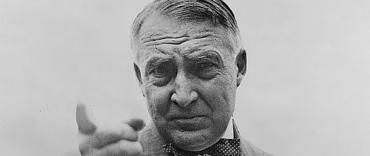
This week, news emerged that Warren G. Harding had, in fact, fathered a child with Nan Britton, a far younger woman with whom he had an affair during his rise to power and during his presidency.
DNA tests released this week confirmed that Harding was the father of Britton’s daughter Elizabeth Ann Blaesing. Britton actually published “The President’s Daughter” back in 1928 and the book focused on their affair. Most historians accepted her story, especially as Harding was known to be involved in other affairs. The DNA tests came too late for Britton who died in 1994 and her daughter who died in 2005.
The news won’t help Harding’s reputation but he is already at the bottom of most historians’ presidential rankings. He shouldn’t be.
There were plenty of scandals under Harding’s watch, namely the Teapot Dome. Harding’s presidency actually doesn’t appear as ethically challenged as plenty of other presidencies, including Grant’s, Nixon’s, Clinton’s, Buchanan’s and others.
Harding had a poor command of the English language and, as this week’s news shows, couldn’t keep his pants on. Still, Harding’s extramarital dalliances pale when compared with Bill Clinton’s, Jack Kennedy’s or Alexander Hamilton’s.
But Harding achieved some major triumphs, even if they have mostly been ignored by historians. Harding lowered taxes from the highs of the Progressive Era and World War I which helped launch the Roaring 20s, the greatest economic growth the nation had seen until that point in history. Like so many Republicans, Harding promised to balance the budget. Unlike too many Republicans, Harding actually did it. Under Harding’s watch, unemployment dropped from 12 percent to 3 percent.
While he was not the interventionist that Woodrow Wilson was and was no fan of the League of Nations, Harding tried to work with other nations on international disarmament and pushed for a global court. He was not the isolationist he is often portrayed as.
Harding also had one of the better records on civil rights in the early 20th century and was far better than the progressive Wilson on this front. A vocal opponent of lynching, Harding also rescinded Wilson’s executive order ensuring federal government offices would be segregated. Harding even headed to states like Alabama during his presidency to demand equal rights for all.
To be sure, Harding too often ignored scandals inside his administration and he was, as we were reminded again this week, an unabashed philanderer. But there have been far worse presidents than him and he deserves to get out of the bottom tier of the historical rankings.
Reach Kevin Derby at kderby@sunshinestatenews.com or follow him on Twitter: @KevinDerbySSN



Comments
Frank--apologies. I tried to
Off the top of my head, I'd
I would put Harding above
I would put Harding above
Thanks as always for reading,